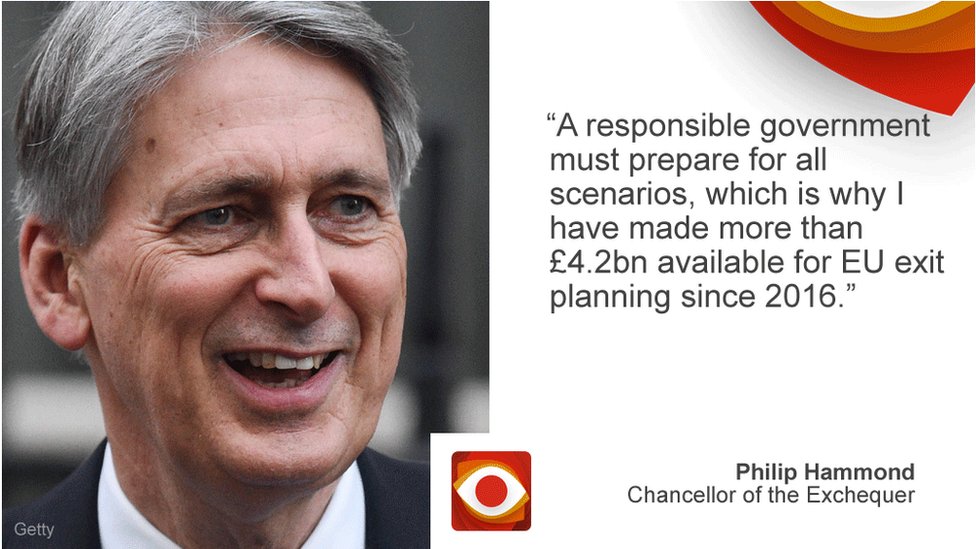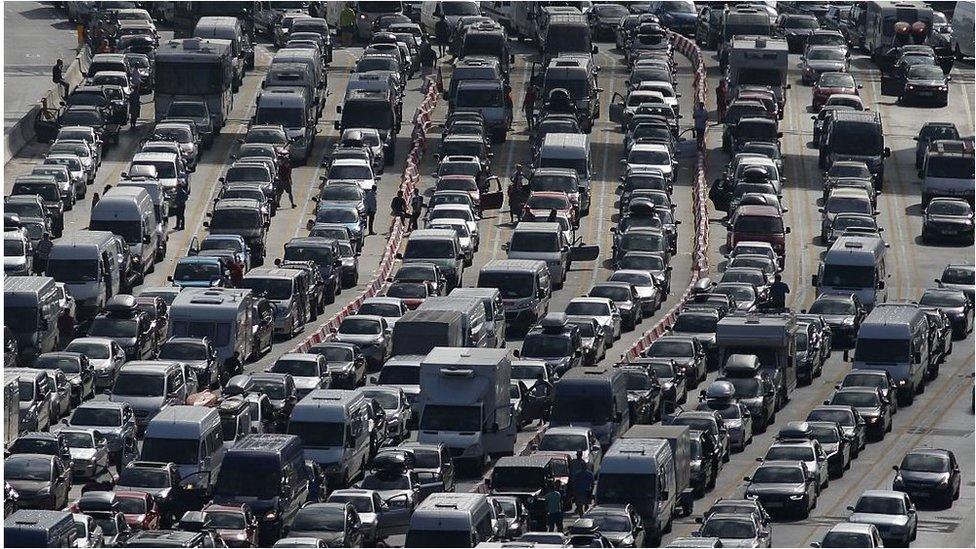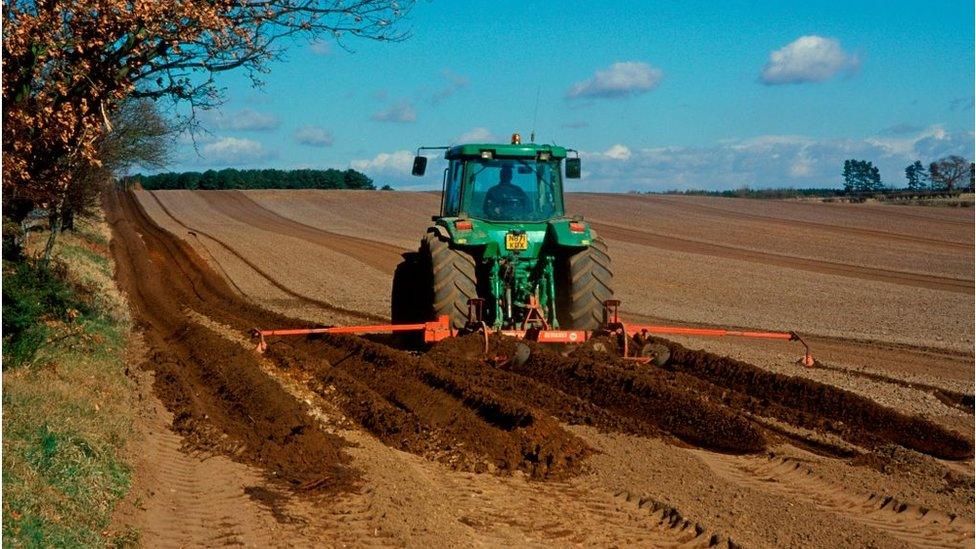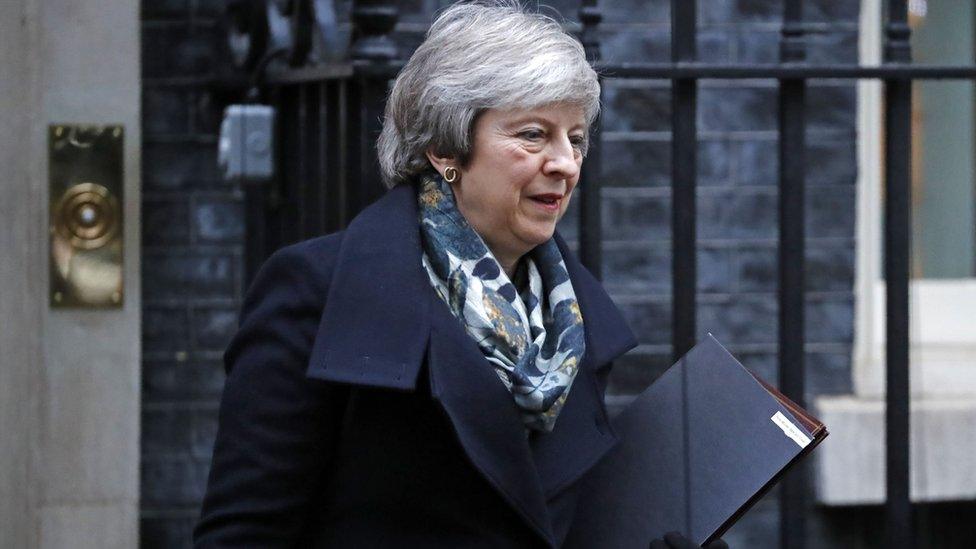Reality Check: What is the government spending on Brexit preparations?
- Published

The Treasury says that since 2016 it has provided £4.2bn for Brexit preparations.
Not all of that money will be spent on getting ready for no deal.
Even if a withdrawal agreement is finalised and the UK enters a 21-month transition period after Brexit, plenty of things will need to be done to prepare the country for life outside the EU.
But no deal would mean the UK needing to spend the largest amount of money in the shortest possible time. And it has been struggling to spend money quickly.
According to the Treasury, £1.5bn is due to be spent on Brexit during the course of this financial year. But while the government says it is stepping up the pace of planning, the Office for Budget Responsibility (OBR) has predicted, external that £0.4bn, nearly a third of the money available this year, will not be spent before the end of March 2019.
At the moment, it looks like more money will be spent in the financial year after Brexit is due to happen (from April 2019-April 2020) than in the current financial year.
And that's not much use for no-deal preparations that will have to take place before the UK leaves.

Extra staff will be needed at UK borders
So what's the money being spent on and why the delays in spending it?
Plenty of extra staff have been recruited across government departments to deal with the challenges of Brexit.
"We have hired about 10,000 people so far," John Manzoni, the chief executive of the civil service told the House of Commons Public Administration and Constitutional Affairs Committee last week. "There are about another 5,000 in the pipeline and there are probably another 5,000 to come, in the event of a disorderly exit."
Her Majesty's Revenue and Customs (HMRC), for example, already had more than 3,000 people in EU exit roles at the end of November this year.
But it takes time to recruit, vet and train staff, and then it takes more time to get money out of the door into the projects that need to be implemented.
It has also been very difficult for government departments to know how to spend their money amid the extreme political uncertainty surrounding the Brexit negotiations.
A report by the National Audit Office, external, published in September, emphasises this point.
"The constantly changing environment that Defra is working in," it said, "in particular the fluctuations in the likelihood of reaching a (Brexit) deal, has made it difficult for Defra to make, and stick to, a robust plan."

Perhaps the biggest questions, in the event of no deal, relate to what would happen at UK borders after Brexit.
This may be where the most intensive planning is taking place, and a significant tranche of government money will have to be spent to meet the challenge.
A statement issued by the Cabinet Office earlier this month said cross-government planning assumptions have been revised after the European Commission made it clear that, in the event of no deal, it would treat the UK like any other third country, and impose the full range of controls on people and goods entering the EU from the United Kingdom.
The Cabinet Office statement said the impact would be felt most severely at the ports of Dover and Folkestone, where both exports and imports would be affected because of the frequency of crossings of the English Channel, and the knock-on effects of any delays.
Revised government planning assumptions are that - in a worst-case scenario - there will be "significantly reduced access" across the Channel "for up to six months".
Among the contingency plans being proposed, the government is investigating chartering ships to use on less congested sea routes to other ports such as Felixstowe and Tilbury.



- Published18 December 2018
- Published18 December 2018
